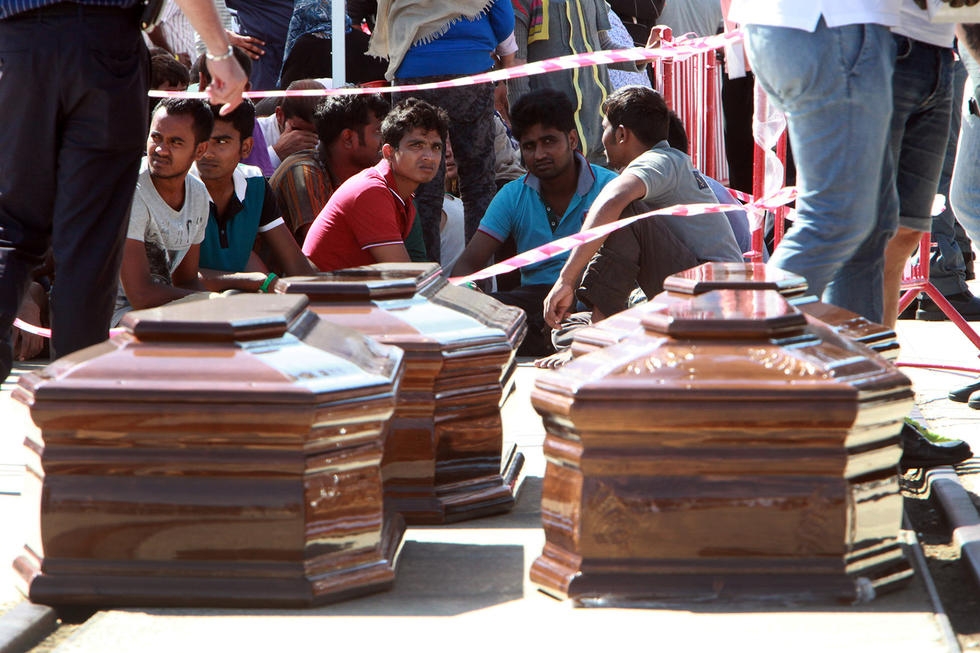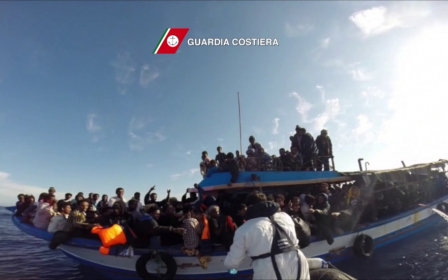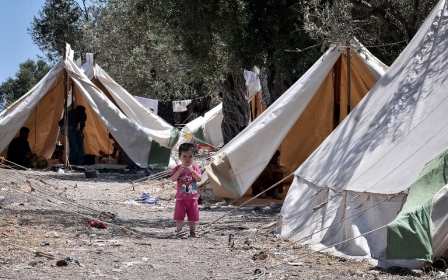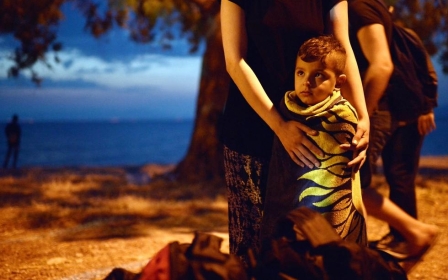Hundreds feared dead after boat carrying 600 migrants capsizes off Libya

A boat carrying 600 migrants capsized north of the coast of Libya on Wednesday.
Over 200 migrants attempting the perilous journey across the Mediterranean were feared to have drowned after their overcrowded fishing boat capsized off Libya.
The boat capsized as rescue boats were approaching it, UNHCR said in a statement.
One of the first ships at the scene was an Irish navy vessel, which responded to a distress call picked up in Sicily. As the vessel launched its rescue boats, the migrants reportedly moved to one side of the fishing boat, causing it to capsize.
"No migrant refugee boat can carry that many people safely," said UNHCR spokesperson Melissa Fleming, speaking to Sky News.
"The way they're being transported is simply life threatening - if they fall into the water it is very often a death sentence."
Doctors Without Borders (MSF) confirmed that there had been “many deaths” and said its Dignity 1 vessel was on the scene, with two more boats en route.
More than 2,000 people are thought to have died in 2015 while trying to cross the Mediterranean to Europe, while around 188,000 have been rescued, according to the International Organisation for Migration. A total of 3,279 died in 2014.
“It is unacceptable that in the 21st century people fleeing from conflict, persecutions, misery and land degradation must endure such terrible experiences in their home countries, not to mention en route, and then die on Europe’s doorstep,” said IOM Director General William Lacy Swing on Tuesday.
New MEE newsletter: Jerusalem Dispatch
Sign up to get the latest insights and analysis on Israel-Palestine, alongside Turkey Unpacked and other MEE newsletters
Middle East Eye delivers independent and unrivalled coverage and analysis of the Middle East, North Africa and beyond. To learn more about republishing this content and the associated fees, please fill out this form. More about MEE can be found here.




